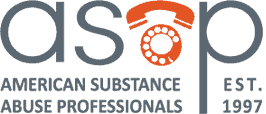DOT Makes Oral Fluid Collector Training Easier
By ASAP Staff
When the U.S. Department of Transportation issued final regulations in May of 2023 for lab-based oral fluid testing, several prerequisites had to be fulfilled before the new regs could go into full effect for covered employers. Chief among them was the certification of at least two laboratories by the federal government to conduct oral fluid testing under the regs. Additionally, individuals had to be trained to collect an oral fluid sample properly for DOT purposes. This meant there had to be qualified trainers proficient in the actual device that would be used and capable of overseeing mock collections for the trainees.
A Classic ‘Catch-22’
Despite the fact that oral fluid testing had been around for many years, no one was qualified per the new regulations to conduct the training or perform the collections. As an industry, drug testing professionals found themselves in a classic “catch-22.”
DOT solved that problem on November 5, 2024, with the issuance of a final rule that amends DOT’s regulated industry drug testing program primarily as it relates to oral fluid testing. In addition to clarifying that a “qualified urine collector is not a qualified oral fluid collector,” the rule provides temporary qualification requirements for mock oral fluid monitors.
The Summary of Changes
Quoting from the summary of changes posted on DOT’s website:
“To best facilitate the timely training of oral fluid collectors, the final rule permits an individual who is not a qualified oral fluid collector to serve as the monitor for oral fluid mock collections ONLY if:
- The individual successfully completes an oral fluid ‘train the trainer’ course (§ 40.35(c)(2)(iii)); OR
- The individual conducts oral fluid collector training (§ 40.35(c)(2)(ii)).
- DOT is waiving the requirement that an individual has at least 1 year of experience conducting oral fluid collector training.
- The individual conducting the oral fluid collector training should (1) have a thorough understanding of Part 40, (2) be well-versed in the course content they are teaching, and (3) maintain records to demonstrate that the training was conducted. The course content must meet the requirements specified in § 40.35(b).”
Implementing Changes
The temporary relief from the qualified oral fluid collector requirements in § 40.35(c)(2) will end one year from the date the agency announces through the Federal Register that the first laboratory has been certified for oral fluid testing.
The rule also clarifies that “An oral fluid collector must not allow any person other than the collector, the employee, or a DOT agency representative to actually witness the testing process.”
Further, the rule states that “After an employee provides a sufficient oral fluid specimen, the collector must check the ‘Volume Indicator(s) Observed’ box in Step 2 of the Federal CCF to document that the collector observed the volume indicator(s).”
Conclusion
Finally, the November 5th rule clarifies that individuals can complete oral fluid collection device training and oral fluid mock collections before HHS certifies oral fluid testing laboratories but the training should be done with a device that has been approved for use as part of “an official HHS laboratory certification package.” If a non-approved device is used for the training, “there is the risk that the device may not be ultimately included by a laboratory with its application package to HHS and/or approved for use by HHS.”
You can view the final rule on ODAPC’s website.
American Substance Abuse Professionals, Inc.® (ASAP) provides customized drug-free workplace programs for companies seeking to improve workplace safety, minimize health care costs, increase employee retention and reduce worker’s compensation claims.
Call us 888-792-2727 x607


